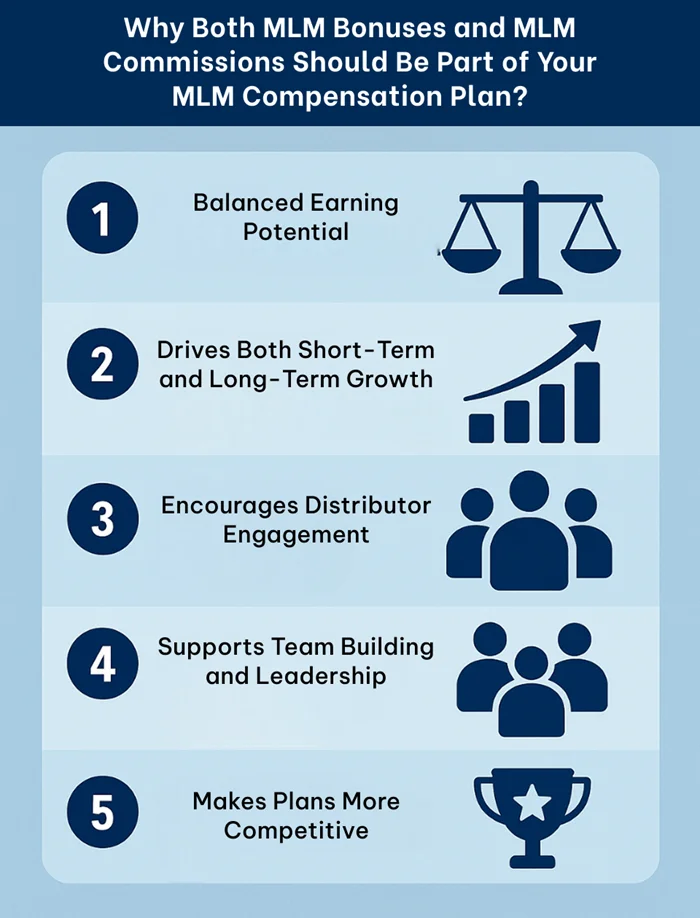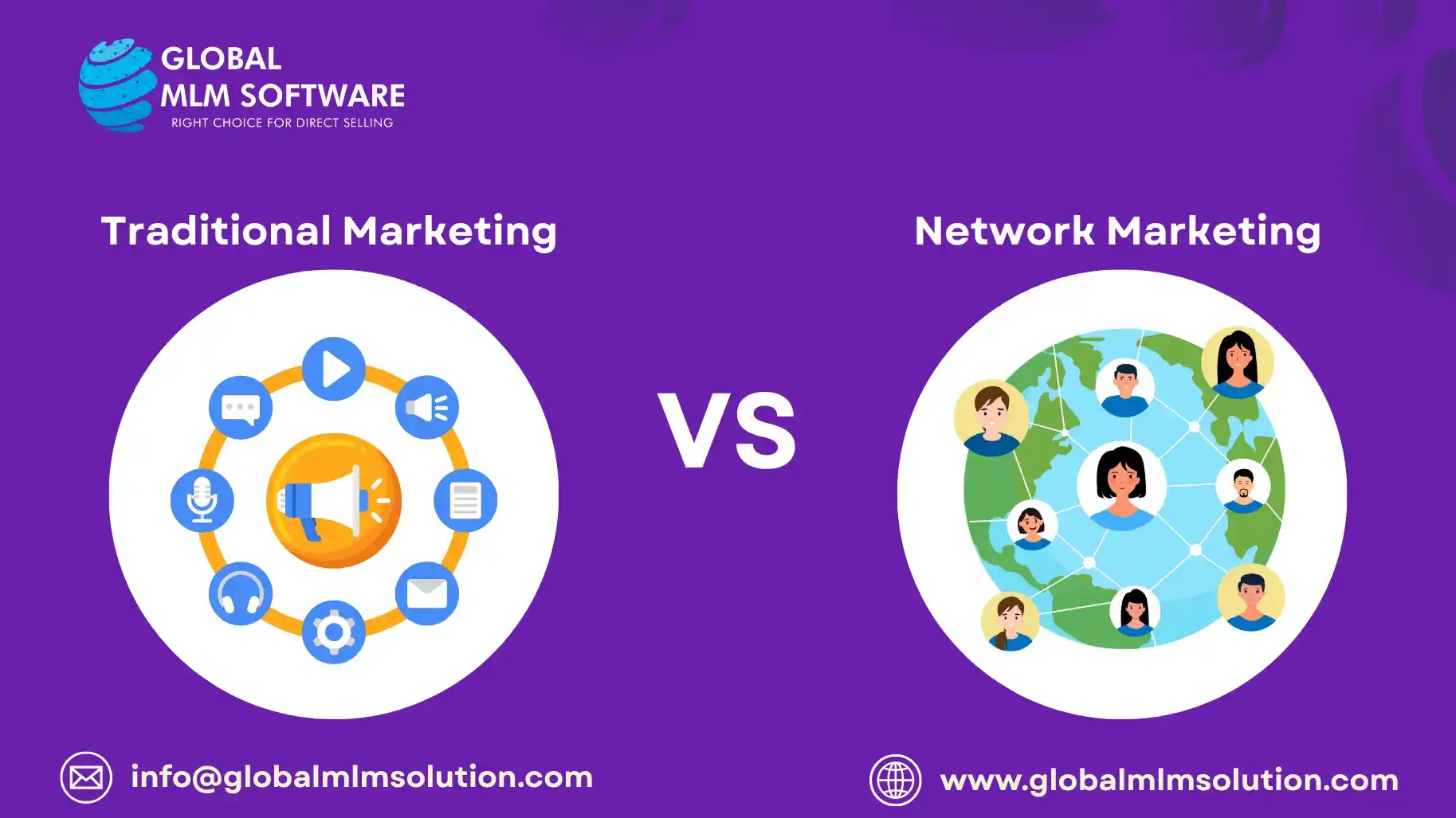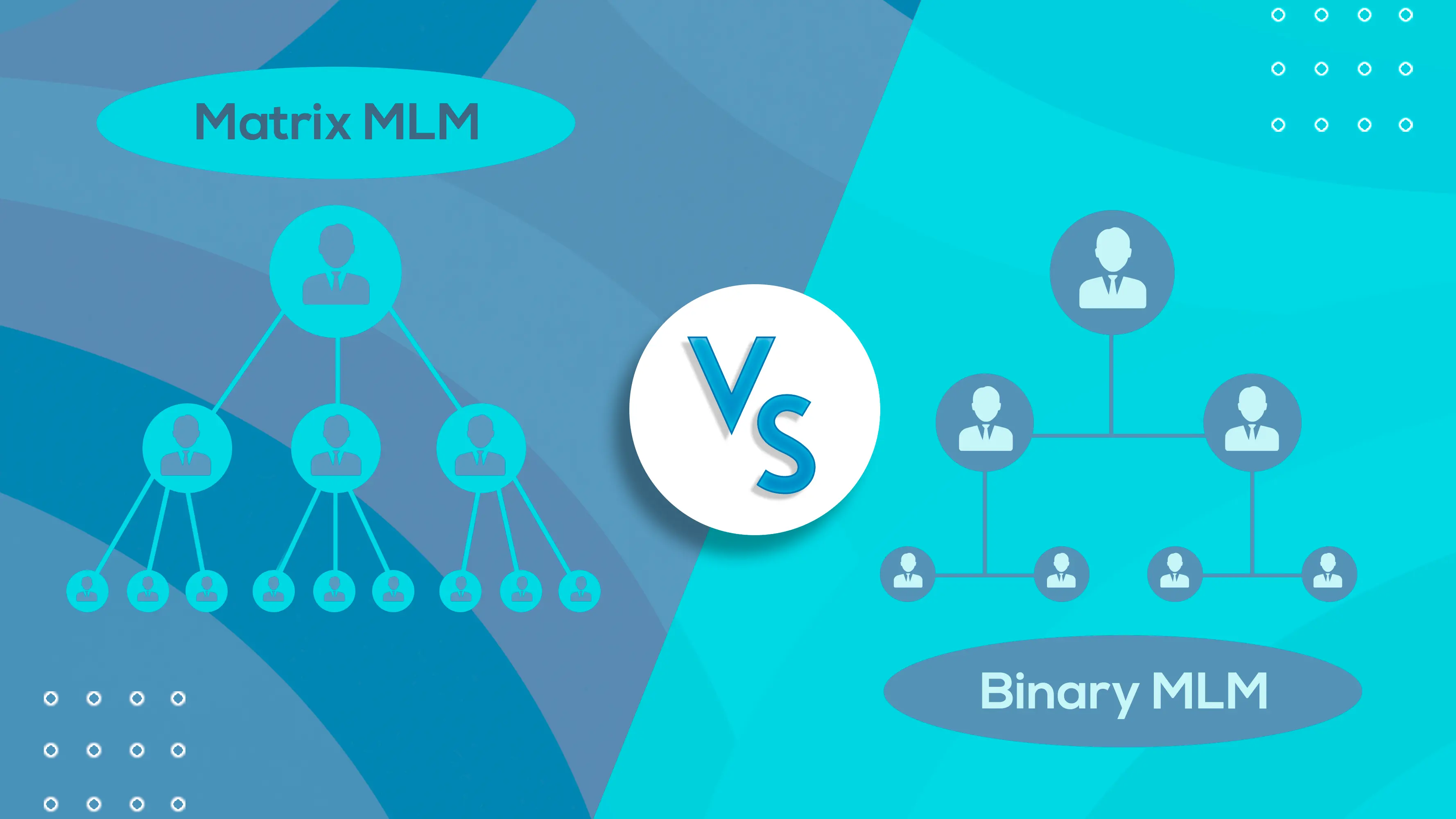In the MLM industry, two words often create confusion: bonus and commission. While both sound like ways to earn extra income, they actually serve very different purposes in motivating and rewarding distributors.
In this article, we’ll break down the difference between MLM bonuses and MLM commissions. We will explore how each of these impacts distributor motivation, and also highlight why a balanced mix of both is vital for a successful compensation plan.
This Article Contains:
What are MLM Commissions?
MLM commissions are the core earnings in most compensation plans. They are calculated based on product sales, whether from a distributor’s direct customers or from their downline’s performance. Because commissions are tied directly to measurable sales volume, they provide a steady and predictable income flow.
What are MLM bonuses?
MLM bonuses, in contrast, are extra rewards layered on top of commissions. These are usually tied to milestones such as rank advancements, hitting monthly sales targets, or supporting team growth. For example, a distributor may receive a fast-start bonus for enrolling new members or a leadership bonus for helping their downline succeed.
What is The Difference Between MLM Commissions and MLM Bonuses?
In MLM, the debate of MLM bonus vs MLM commission often comes down to consistency versus motivation. Together, MLM commissions and bonuses strike a balance between providing a reliable income and creating motivational incentives. Now, let’s break down the key difference between the two.
It’s important to understand the MLM bonus vs MLM commission difference before including them in your MLM compensation plan.
1) Nature of Earnings
MLM commissions are core earnings that distributors receive from sales activity. On the other hand, MLM bonuses are extra incentives layered on top of these commissions that are paid for reaching certain performance goals.
For example, Retail commissions are paid on sales activities, while rank advancement bonuses are achieved for reaching a certain rank/level within the marketing structure.
2) Frequency of Payments
Commissions are earned regularly as long as distributors are actively selling. But bonuses are usually triggered when specific milestones are achieved.
For example, retail commissions or team commissions are paid every month as long as the distributor is active. But bonuses like the fast start bonus are achieved when early sales and recruitment milestones are met within the first 30/60/90 days of joining.
3) Basis of Calculation
Commissions are calculated as percentages of the sales volume of the distributor and their team. However, bonuses are more achievement-oriented and are triggered by actions such as hitting a rank, balancing team legs, completing a board/matrix, etc.
For example, Team commissions are calculated based on the percentages of sales made by a distributor's team. But a matrix completion bonus is earned when a distributor completes their board/matrix structure.
4) Performance Focus
Commissions are usually designed to reward consistent, steady sales activity over time. On the other hand, bonuses often reward short-term achievements and special milestones.
For example, Distributors receive team/rank-based commissions for consistent personal as well as team sales activity. However, they receive a direct referral bonus when they recruit new members into the teams.
5) Predictability of Income
Commissions are more predictable since they are tied to sales volume. But bonuses cannot be predicted because they depend on special conditions being met.
For example, when distributors have a stable customer base, they can predict their retail commissions every month or even gauge the performance of their team to predict team commissions.
However, they can never predict when they will actually earn rank advancement bonuses, pairing bonuses, or event leadership pool bonuses, since there are a lot of unpredictable elements involved, like team performance, each member's activity, etc.
Example to Show Clearer Difference Between MLM Bonuses and MLM Commissions
Let’s understand how MLM commissions and bonuses work as part of an MLM compensation plan through the example of Dave.
Dave recently joined an MLM company, Fit+, which sells nutritional supplements. In his first month, Dave focused on retail sales and introduced the products to his friends and family. He earned retail commissions for every bottle of supplements he sold. This way, he began to earn a steady stream of income from his personal efforts.
At the same time, Dave also recruited two new members to his team, who also purchased the starter pack. He received a sponsor bonus, which was an additional income on top of his commissions.
Over time, Dave’s team quickly achieved a certain sales target set by the company within 30 days. This way, Dave qualified for the fast start bonus.
As months passed, Dave’s team grew, and their collective sales volume increased. This opened up a new income stream of team commissions for him every month. He also earned a rank advancement bonus when he hit his first leadership rank.
This way, Dave built himself a steady income from commissions and bonuses, and felt motivated to keep growing in Fit+.
| Aspect | MLM Commissions | MLM Bonuses |
|---|---|---|
| Definition | Earnings based on personal or team sales volume | Extra rewards for achieving specific goals or milestones |
| Basis | Regular income tied to sales | Performance-based incentives |
| Frequency | Earned consistently (e.g., weekly/monthly) | Often one-time or occasional |
| Purpose | Rewards ongoing sales efforts | Encourages exceptional performance and fast growth |
| Predictability | More predictable | Based on qualifying achievements |
| Type | Fixed percentage of volume or sales | Fixed amount or extra percentage tied to a milestone |
Why Both MLM Bonuses and MLM Commissions Should Be Part of Your MLM Compensation Plan?
A well-structured MLM compensation plan should provide multiple income opportunities for your distributors. Relying only on commissions may provide steady earnings but can fail to generate excitement or urgency among your distributors.

On the other hand, focusing only on bonuses may create short-lived motivation without ensuring consistent sales-driven revenue. Including both MLM commissions and MLM bonuses comes with the following benefits:
1) Balanced Earning Potential
Commissions provide steady, predictable income from sales, while bonuses add extra excitement with lump-sum rewards. Together, they make the earning opportunity more attractive.
2) Drives Both Short-Term and Long-Term Growth
Commissions fuel consistent sales activity, while bonuses encourage rank advancements, leadership development, and long-term network expansion.
3) Encourages Distributor Engagement
Bonuses spark bursts of motivation for specific achievements, and commissions maintain ongoing engagement by rewarding everyday efforts.
4) Supports Team Building and Leadership
Bonuses often reward leaders for mentoring and expanding their teams, while commissions reward the sales generated by those teams, creating a win-win system.
5) Makes Plans More Competitive
In today’s MLM landscape, a hybrid approach is essential. Companies that offer only commissions or only bonuses risk losing distributors to plans that provide both.
Common Misconceptions About MLM Commissions and MLM Bonuses
If you are in the process of structuring your MLM compensation plan, you may have certain pre-conceived notions regarding the inclusion of commissions and bonuses. In this section, we break down some of the misconceptions you have, just to make things easier for you:
| Misconception | Reality |
|---|---|
| Bonuses Are Guaranteed Just Like Commissions | Bonuses are not automatic. They are performance-driven and tied to milestones like recruitment, rank advancement, or achieving set sales volumes. |
| Commissions Stop Once You Get Bonuses | Commissions continue as long as sales happen. Bonuses are extra income on top of commissions for meeting targets. |
| Both Are Paid Out Under the Same Conditions | Commissions are tied to ongoing sales, while bonuses depend on specific achievements such as hitting ranks or maintaining team volume. |
| Bonuses and Commissions Are Too Expensive to Offer Together | With strategic payout structuring, both can coexist without straining finances. In fact, this hybrid approach boosts sales and offsets costs long-term. |
| Bonuses Complicate the Compensation Plan | The challenge lies in poor plan design, not the bonuses. Well-structured bonuses actually motivate without overwhelming distributors. |
1) Bonuses Are Guaranteed Just Like Commissions
A widespread misunderstanding is that bonuses are automatic earnings. In reality, bonuses are performance-driven and tied to specific milestones, such as recruitment, leadership rank advancements, or achieving a set sales volume. Unlike commissions, which come directly from product sales, bonuses act as an incentive layer and are not guaranteed.
2) Commissions Stop Once You Get Bonuses
Some assume that once distributors qualify for bonuses, their commission flow halts or reduces. That’s not true. Commissions continue as long as product sales are happening, while bonuses are added as extra income for achieving targets. Both run in parallel.
3) Both Are Paid Out Under the Same Conditions
Another misconception is that commissions and bonuses are subject to identical rules. In fact, commissions are usually based on ongoing sales, while bonuses depend on meeting certain performance criteria, like hitting rank thresholds or maintaining team volume.
4) Bonuses and Commissions Are Too Expensive to Offer Together
It’s easy to think that including both in a plan will strain company finances. But that’s not true. You need to strategically structure your payout pool to include both commissions and bonuses. This way, you will not just control costs but also maximize distributor motivation.
Also, in the long term, this approach will end up generating higher sales volume, ultimately offsetting expenses and driving greater profitability for you.
5) Bonuses Complicate the Compensation Plan
Many company owners hesitate to add bonuses because they fear the plan will look too complicated for distributors. But complexity comes from poor design, not from the idea of bonuses themselves.
When you explain it clearly, bonuses actually make the plan more attractive by highlighting achievable milestones and extra rewards. Instead of overwhelming distributors, they give them clear short-term goals that keep them engaged while working toward long-term growth.
Understanding the Big Picture of MLM Earnings
The world of MLM commissions and bonuses may seem intricate, but it's important to understand these terms and their types. Each one plays a specific role in shaping the behavior across your distributor network.
In the end, a thoughtfully designed network marketing compensation plan structure has a perfect balance of commissions and bonuses while remaining competitive for the distributors, yet profitable for you. But it also needs to be transparent and motivating.
When done right, it becomes a growth engine for your MLM business that will eventually drive you to long-term success.
FAQs
1. Are MLM bonuses taxable?
Yes, MLM bonuses are generally considered taxable income. Distributors must report both commissions and bonuses as part of their annual income for tax purposes. The specific rules depend on your country’s tax regulations.
2. How are MLM bonuses calculated?
Bonuses are usually calculated based on company-defined criteria, such as:
Achieving a certain sales target in a month or quarter.
Recruiting and supporting new team members.
Reaching a specific rank in the MLM hierarchy.
3. Can MLM bonuses be non-monetary?
Yes. Many MLM companies offer non-monetary bonuses such as vacations, cars, products, or gift vouchers to motivate distributors.
Disclaimer: Global MLM Software does not endorse any companies or products mentioned in this article. The content is derived from publicly available resources and does not favor any specific organizations, individuals or products.









